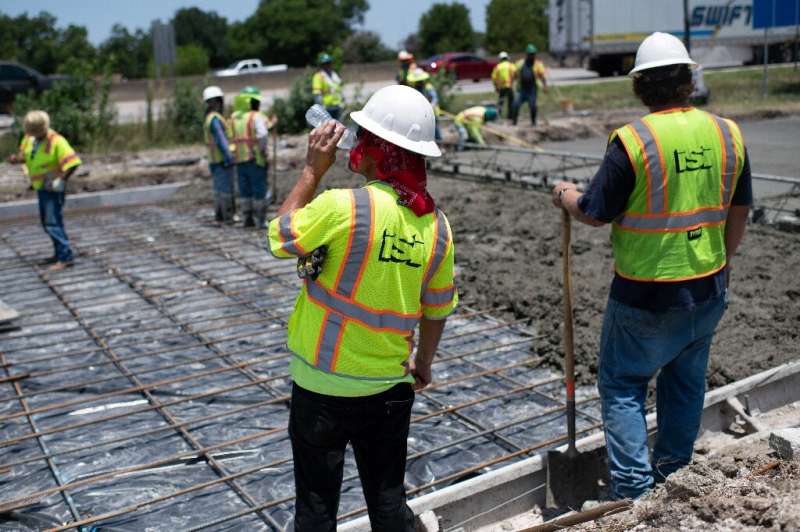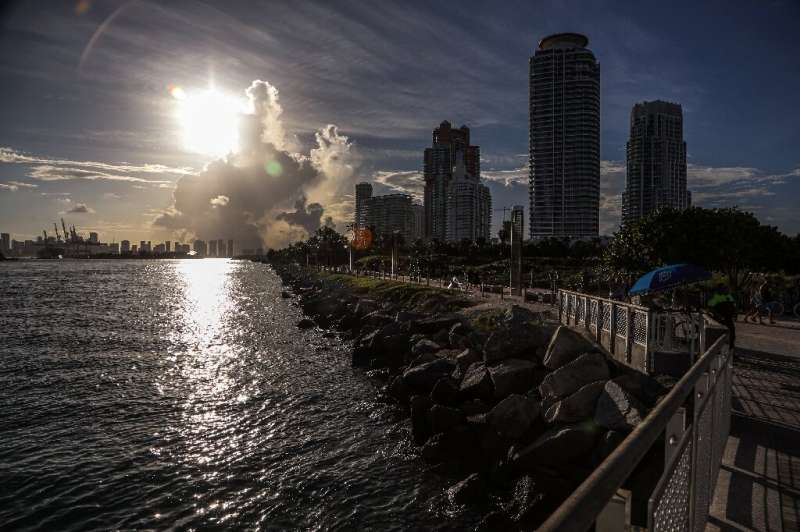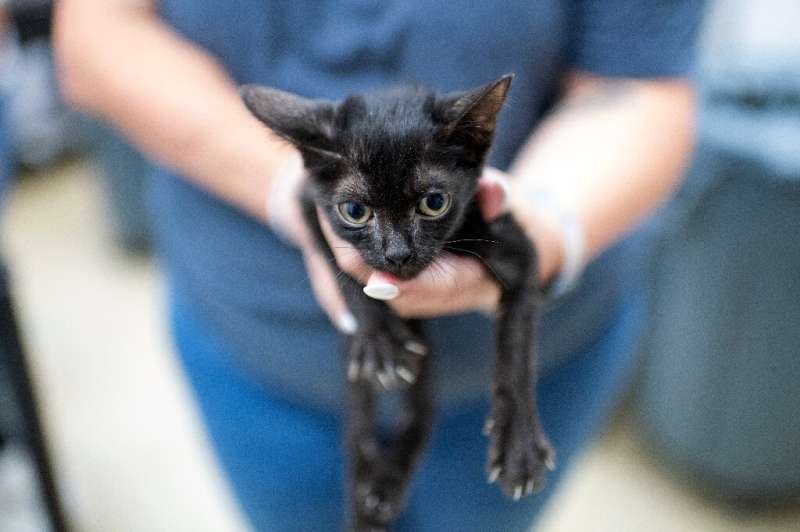This article has been reviewed according to Science X's editorial process and policies. Editors have highlighted the following attributes while ensuring the content's credibility:
fact-checked
reputable news agency
proofread
Southern US swelters in brutal heat wave

A dangerous and prolonged heat wave blanketed large parts of the southern United States on Tuesday, buckling highways and forcing people to shelter indoors in what scientists called a climate-change supercharged event.
Excessive heat warnings were in place from Arizona in the southwest all the way to Alabama in the southeast, with south and central Texas and the Lower Mississippi Valley worst hit, the National Weather Service (NWS) said.
Victor Hugo Martinez, a 57-year-old foreman who was leading workers repairing a road in Houston, told AFP: "We can't keep up with it. It's too much, we have like 10 or 12 spots like this right now."
The crew wrapped bandanas around their heads to protect themselves from the blazing heat, with Martinez explaining they made sure to hydrate plenty and take several breaks to protect their health.
The NWS meanwhile urged Americans in affected areas to drink water, stay indoors, and check on vulnerable friends and relatives.
Andrew Pershing, a scientist with Climate Central, told AFP "the really unusual thing about this event is how big it is, and how long it has lasted."
"There have been places in Texas that have had more than two weeks of over 100 degrees Fahrenheit, which are just really unusual temperatures for this time of year even in a region that is used to heat."
Accumulated historic greenhouse emissions made the extreme weather event at least five times more likely than otherwise, according to preliminary calculations by a team led by Pershing.

The sweltering conditions are expected to expand throughout the south beginning Wednesday and continue into the long July 4 holiday weekend.
The extreme heat appears to have already claimed some lives.
Last week, a 66-year-old postal worker in Dallas fainted while delivering mail as the heat index hovered around 115F. He died hours later, the US Postal Service told the media, though the cause of death is still being investigated.
And on Friday, a 14-year-old boy collapsed from exhaustion while hiking in Big Bend National Park in Texas and later died, according to an official statement.
His stepfather left the scene to hike back to their vehicle to find help while the teen's brother attempted to carry him back to the trailhead. The father was later found dead in a car crash.
Strain on power grid
The strain is sure to put the power grid in Texas to the test, as millions of people switch on their air conditioners to cope, with demand peaking around late afternoon.
ERCOT, the state utility operator, has issued a Weather Watch, calling on individuals and institutions to voluntarily save energy to avoid an emergency—but has so far been able to cope, thanks in part to an increasing contribution from solar power in recent years.

Public cooling centers run by local authorities or the Red Cross are available for vulnerable people.
Animals, too, were suffering. The Houston Humane Society said 12 cats and one dog were found dead in an abandoned apartment. The group was able to rescue six cats from the property.
AC feedback loop
Kristina Dahl, principal climate scientist of the Union of Concerned Scientists said that the widespread use of air conditioning was itself a climate feedback loop.
"We know that one of the most effective things you can do to prevent heat, illness and death during heat waves is to run the air conditioning," she told AFP.
"And yet if we are not powering that air conditioning with clean renewable energy sources, we are contributing more carbon emissions to the atmosphere which will further worsen heat which will necessitate greater air conditioning use."
Recent years have seen an explosion in litigation aimed at shifting the financial responsibility of climate disasters towards fossil fuel companies.
Last week, a county in the northwestern state of Oregon filed a lawsuit against major fossil fuel companies seeking more than $51 billion over the 2021 "Heat Dome," which blighted Canada and the United States.
"Communities everywhere are now paying the price for the fossil fuel industry's decades of climate deception and pollution," Richard Wiles, president of the Center for Climate Integrity, told AFP.
© 2023 AFP





















